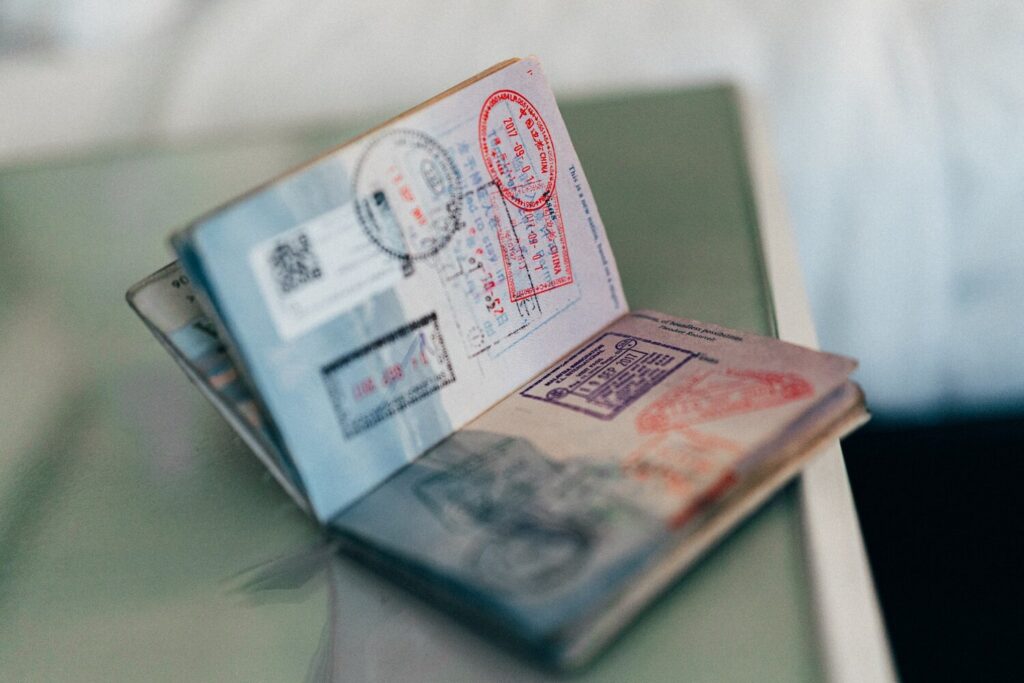
UK Opens Its Doors to Remote Workers
The country of Estonia kicked off the digital nomad visa trend in July 2020, and today, there are more than 65 countries that offer digital nomad visas. With many of these digital nomad visas still less than three years old, there is very little published data on the number of applications for these visas per country. But there is one shared aspect of all digital nomad visas: paperwork and bureaucracy. The UK has recently updated their immigration policy, which makes it possible for workers to legally work online in the UK without the need for a digital nomad visa. Does this model make more sense for remote workers in the future? Let’s take a look at the new policy.
In December 2023, the UK Home Office relaxed its entry rules. Visitors can now engage in remote work on their travel visas, provided it’s not the primary reason for their visit. They’re allowed to perform tasks like email correspondence, taking business calls, and participating in remote meetings. This policy contrasts with the digital nomad visas other countries offer, which are designed for people wanting to live in one country while working for a company in another.
The UK’s new policy also benefits researchers, scientists, and academics. They can now conduct research during their stay. Moreover, the updated rules expand the Permitted Paid Engagements (PPE) list, which now allows paid conference speakers to conduct their business in the UK. However, these engagements must occur within 30 days of arrival.
The changes to the UK’s immigration policy officially went into effect on January 31, 2024. While the UK has refrained from introducing a digital nomad visa, its recent changes facilitate easier business travel and remote work practices. However, these adjustments do not replace the need for Skilled Worker visas for longer-term employment in the UK. Visitors should be aware of these restrictions to ensure they do not violate immigration laws. It is also important to check how long you are allowed to stay in the UK on a travel/visitor visa (which is usually the equivalent of a stamp in your passport) before making your travel plans and buy a plane ticket out of the country before arriving in the UK.
A Global Shift to Remote Work
The UK’s decision to allow remote work for visitors could signal a new policy direction worldwide. Instead of creating separate visas, countries might follow the UK’s lead and build remote work permission into the travel visa. This approach could cut out a lot of bureaucracy and make it easier for remote workers to conduct their business internationally.
However, this strategy also raises questions about the long-term impact on the digital nomad community. Will the lack of a dedicated digital nomad visa limit the UK’s appeal, or will the flexibility of combining work and travel under a visitor visa prove to be more attractive? The answer may depend on how other countries respond. If they offer more tailored digital nomad visas with more benefits, the UK might need to adapt its policies to stay competitive in attracting global talent.
Electronic Travel Authorization (ETA)
As of April 2, 2025, visitors to the UK need an Electronic Travel Authorisation (ETA) if they do not need a visa for short stays of up to six months, or do not already have a UK immigration status. It is important to remember that even visitors who transit through the UK by crossing the UK border need an ETA, if required based on their nationality.
An ETA is a digital permission to travel. It is not a visa or a tax and does not permit entry into the UK. It authorizes a person to travel to the UK.
Please note if you have a visa, have permission to live, work or study in the UK, are a British or Irish citizen, have status under the EU Settlement Scheme, or are travelling on a British Overseas Territories citizen passport, you will not require an ETA. Exemption also applies to those living in Ireland and traveling from Ireland, Guernsey, Jersey or the Isle of Man, and dual citizens with British or Irish citizenship.
Who Needs to Apply for an ETA?
Nationalities from the following locations (including associated territories) can apply for an ETA now:
- Andorra
- Antigua and Barbuda
- Argentina
- Australia
- Austria
- The Bahamas
- Bahrain
- Barbados
- Belgium
- Belize
- Botswana
- Brazil
- Brunei
- Bulgaria
- Canada
- Chile
- Costa Rica
- Croatia
- Cyprus
- Czechia
- Denmark
- Estonia
- Finland
- France
- Germany
- Greece
- Grenada
- Guatemala
- Guyana
- Hong Kong Special Administrative Region
- Hungary
- Iceland
- Italy
- Israel
- Japan
- Kiribati
- Kuwait
- Latvia
- Liechtenstein
- Lithuania
- Luxembourg
- Macao Special Administrative Region
- Malaysia
- Maldives
- Malta
- Marshall Islands
- Mauritius
- Mexico
- Federated States of Micronesia
- Monaco
- Nauru
- Netherlands
- New Zealand
- Nicaragua
- Norway
- Oman
- Palau
- Panama
- Papua New Guinea
- Paraguay
- Peru
- Poland
- Portugal
- Qatar
- Romania
- Samoa
- San Marino
- Saudi Arabia
- Seychelles
- Singapore
- Solomon Islands
- South Korea
- Slovakia
- Slovenia
- Spain
- St Kitts and Nevis
- St Lucia
- St Vincent and the Grenadines
- Sweden
- Switzerland
- Tonga
- Tuvalu
- United Arab Emirates
- United States
- Uruguay
- Vatican City
You can also apply for an ETA now if you have a passport issued by Taiwan which includes the number of the identification card issued by the competent authority in Taiwan.
Please note: Other nationalities cannot get an ETA. You will require a visa to visit the UK instead. It is the visitor’s responsibility to be aware of the ETA or visa requirements and apply, if necessary, before entering UK territory.
How to Apply for an ETA
Applying for an ETA is quick and simple. The UK strongly encourages visitors to apply via the UK ETA app available on Google Play or from the Apple App Store. If you are unable to download the app, you can apply online here.
Applying for an ETA is quick and simple. Most applicants currently get an automatic decision in minutes when applying through the UK ETA app.
Visitors are advised to allow three working days for a decision on their application, but this is to take account of the small number of cases which need further review. Please also be aware of UK national holidays, which can affect the processing time.
To apply for an ETA, applicants need to:
- Pay the £10 fee
- Provide contact and passport details
- Provide a valid photo, complying with the rules for digital photos on GOV.UK
- Answer a set of questions
People must travel using the same passport they used when they applied for an ETA. If you get a new passport, your UK ETA will no longer be valid.
How Long Does My ETA Last?
After your ETA has been approved, visitors will be granted permission to stay in the UK for six months, whether for business or tourism reasons. The ETA will be valid for two years and covers multiple entries to the UK during that time period. Please keep track of when your ETA was approved and set a reminder in your phone to remember to renew your ETA when the time comes.
ETA Cost Details
At the time of writing, an ETA costs £10 per person, and the fee applies to all travelers, including babies and children. However, the UK Home Office has announced that the price will increase to £16. The date of this price change is yet to be revealed. The aim of the increase is to reduce the reliance of the migration and borders system on taxpayer funding.
Potential Impact for Digital Nomads
While the UK’s approach of permitting remote work on standard visitor visas eliminates the need for a specific digital nomad visa, the introduction of the ETA requirement adds an additional layer of bureaucracy that may deter some digital nomads. For spontaneous travelers or those accustomed to visa-free entry to the UK, this extra step, although it is relatively straightforward, requires advance planning and an additional cost.
Digital nomads should also be aware that the UK’s immigration policy is subject to political pressures. Recent debates about border security and immigration control have intensified, with some political factions advocating for stricter entry requirements and more comprehensive traveler screening. The current Conservative government’s approach to border management has emphasized technological solutions like the ETA system, but future administrations might introduce additional restrictions or requirements for foreign workers, even those working remotely.
For digital nomads who frequently enter and exit the UK, there’s also a risk of increased scrutiny from border officials. Though remote work is technically permitted, immigration officers maintain discretion over entry decisions. Frequent entries within short periods might raise suspicions about whether remote work has become the primary purpose of visits, which could potentially lead to a refusal to enter the UK.
Tax Considerations
Digital nomads should be particularly mindful of the six-month limitation on visitor stays. Unlike dedicated digital nomad visas in countries like Portugal or Estonia, which can extend to one or two years, the UK visitor visa (even with remote work permission) caps stays at six months. This restriction makes the UK more suitable for short-term remote work arrangements rather than establishing a semi-permanent base.
Furthermore, tax implications remain an important consideration. While the UK allows remote work on visitor visas, spending more than 183 days in the country could potentially trigger tax residency obligations. Digital nomads earning substantial income should consult tax professionals to understand their liabilities, as the UK’s tax authority (HMRC) has sophisticated systems for tracking entry and exit patterns.
Final Thoughts
For digital nomads navigating the evolving global landscape of remote work policies, the UK presents both benefits and drawbacks. On one hand, its progressive approach of allowing remote work on standard visitor visas eliminates much of the bureaucracy associated with dedicated digital nomad visas. On the other hand, those looking for more long-term arrangements might find more value in countries with dedicated digital nomad visas offering extended stays and tax benefits.







Responses